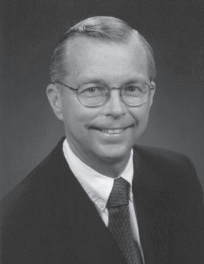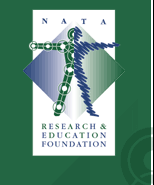|
PRACTICAL
SIGNIFICANCE
If a
relatively
low-cost
method
can be
employed
to
screen
athletes
for the
detection
of
hypertrophic
cardiomyopathy,
then the
sudden
death of
many
individuals
could
potentially
be
avoided.
STUDY
BACKGROUND
Hypertrophic
cardiomyopathy
(HCM) is
the
abnormal
thickening
of the
heart
muscle.
This
thickening
stiffens
the
heart
wall so
that it
is less
able to
efficiently
pump
blood
throughout
the
body.
The
prevalence
of HCM
is
estimated
at 1-2 /
per
1,000
individuals.
Hypertrophic
cardiomyopathy
is a
cardiac
condition
that can
go
virtually
undetected
among
the
athletic
population
and is
the
leading
cardiac
cause of
sudden
death
among
younger
athletes.
Even
with the
most
thorough
clinical
history
and
physical
examination,
this
diagnosis
can be
missed.
Several
tests
have
been
proposed
including:
chest
x-ray,
ECG,
blood
analysis,
and
echocardiography.
Echocardiography
has been
the gold
standard
in the
assessment
and
diagnosis
of HCM,
but the
lengthy
study
time and
expense
have
made it
impractical
to use
in the
pre-participation
athletic
physical.
Recently,
a 2
minute
screening
echocardiogram
has been
proposed
as an
alternative
to solve
these
problems.
Despite
the
potential
advantages
of the
screening
echocardiogram,
the
accuracy
has
never
been
determined
in
relationship
to HCM,
as to
whether
it can
actually
identify
HCM in a
mass
screening
setting.
OBJECTIVE
The
purpose
of this
study
was to
investigate
the
potential
usefulness
of using
a
portable
echocardiogram
machine
and a
less
than 2
minute
screening
protocol
to
detect
HCM
during
the
routine
pre-participation
physical.
DESIGN
AND
SETTING
A
prospective,
single-blind,
study
design
was
employed
this
research.
Annual
pre-participation
physicals
were
conducted
for a
local
independent
school
districtís
middle
schools
and high
schools.
SUBJECTS
A total
of 671
student
athletes
with no
history
of HCM
were
tested
in
conjunction
with 14
young
patients
with a
documented
history
of HCM.
The
examiners
and
interpreting
physician
had no
prior
knowledge
that any
HCM
subjects
were in
the pool
of
athletes
being
tested.
MEASUREMENTS
A
screening
echocardiogram
protocol
was
designed
to
detect
HCM
specifically
for this
study.
This
protocol
consisted
of a
cardiac
examination
using a
hand-held
portable
ultrasound
device (OptiGo,
Philips
Ultrasound,
Andover,
MA) that
takes
less
than 2
minutes
to
conduct.
A single
parasternal
long
axis
view of
the
heart
was
obtained
to
measure
the
thickness
of the
ventricular
septum
and
posterior
wall at
enddiastole
according
to the
established
guidelines
of the
American
Society
of
Echocardiography.
RESULTS
Of the
14 HCM
patients
blindly
placed
into the
study, 6
were not
cleared
for
athletic
participation
due to a
suspicious
heart
murmur
that
required
cardiology
referral
(42.9%).
Eight of
the 14
patients
with HCM
were
missed
by
physical
examination
and
cleared
for
athletic
participation
(57.1%).
Of the
14 HCM
patients
blindly
placed
into the
study,
12 were
identified
with the
screening
cardiac
echo
(85.7%).
Of the 2
patients
missed
with
cardiac
echo,
one was
identified
by
physical
examination.
The
other
missed
HCM
patient
was not
identified
by
either
cardiac
echo, or
physical
examination.
Between
physical
examination
and
cardiac
echo, 13
of the
14
patients
with HCM
were
correctly
identified
(92.9%).
Fifty-eight
of the
681
normal
athletes
failed
their
screening
echo
(8.5%).
Of
these,
forty
two
athletes
returned
for a
full
echo and
cardiologist
consultation
and all
were
deemed
normal
(6.2%
false
positive
rate).
CONCLUSIONS
The 2
minute
cardiac
echo
screening
program
used in
this
study
out
performed
the
physical
examination
in the
detection
of HCM.
However,
it still
missed
patients
with HCM
and
resulted
in the
creation
of false
positive
results.
Performing
a
physical
examination
in
conjunction
with the
cardiac
echo
screening
program
was more
accurate
than
cardiac
echo
program
alone.
|
Publication
and
Presentation
List:
-
Bonsell
SB,
Pollo
FE,
Laird
PW,
Ikemba
C,
Franks
BR,
Baum
BS,
Taylor
WF.
The
Accuracy
Of
Screening
Echocardiography
In
Detecting
Hypertrophic
Cardiomyopathy
In
The
Pre-Participation
Athletic
Physical.
2006.
NATA
Annual
Meeting
&
Clinical
Symposium.
Atlanta,
GA.
Funded
by NFL
Charities |
|
|
|

Shawn Bonsell, MD
Principal Investigator |
Dr. Bonsell received his MD, Oregon Health Sciences University, Port-land, Oregon; completed his residency in orthopaedics at Duke University and an orthopaedic sports medicine fellowship at Baylor Medical Center in Dallas. Currently, Dr. Bonsell practices at the Sports Medicine Clinic of North Texas, specializing in all aspects of sports medicine. Dr. Bonsell also serves as the team physician for the FC Dallas-Professional Soccer Team, the Dallas Desperados Arena Football Team, and Mesquite High School Football Team in the Dallas Metroplex area. He also assists with sports medicine coverage for USA Swimming, Horn High School, North Mesquite High School, and Baylor Health Care sporting events. Dr. Bonsell remains active in many sports medicine and orthopaedics societies.
Shawn Bonsell, MD
Sports Medicine Clinic of North texas
1015 N Carroll, #2000
Dallas, Texas 75204
Off: 214-824-7744
Fax: 214-824-7755
smarshall@unc.edu |
| |
|
 William F. (Bucky) Taylor, III, MEd, ATC, LAT
Principal Investigator |
Mr. Taylor graduated from Texas Tech University, Lubbock, TX and went on to receive his Masters degree from North Texas University. Mr. Taylor is a licensed athletic trainer in the state of Texas and has been a certified athletic trainer since 1975. He has served as Head Athletic Trainer of Mesquite High School, Mesquite, TX since 1974. He has been an active leader in the Southwest Athletic Trainers Association, and served as President in 2003-2004. Mr. Taylor continues to be active in many aspects of the sports medicine field and various associations.
William F. (Bucky) Taylor, III, MEd, ATC, LAT
Mesquite High School
704 Michelle Way
Mesquite, TX 75149-2508
Phone: (972) 882-7896
Fax: (972) 882-7866
btaylor@mesquiteisd.org |
|
|
This
Grant
Information
Summary
may be
downloaded
in a
2-page
pdf file
from
http://www.natafoundation.org/pdfs/07Bonsell-Taylor.pdf. |
Back to
September 30, 2008
eBlast
Newsletter
Send e-mail
to johno@nata.org with questions
or
comments
about this web site. |


